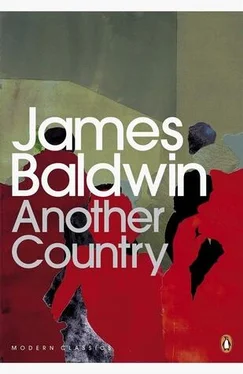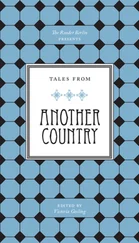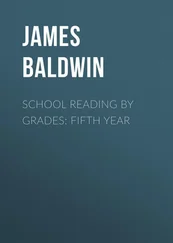James Baldwin - Another Country
Здесь есть возможность читать онлайн «James Baldwin - Another Country» весь текст электронной книги совершенно бесплатно (целиком полную версию без сокращений). В некоторых случаях можно слушать аудио, скачать через торрент в формате fb2 и присутствует краткое содержание. Год выпуска: 2001, Издательство: Penguin Books, Жанр: Современная проза, на английском языке. Описание произведения, (предисловие) а так же отзывы посетителей доступны на портале библиотеки ЛибКат.
- Название:Another Country
- Автор:
- Издательство:Penguin Books
- Жанр:
- Год:2001
- ISBN:нет данных
- Рейтинг книги:3 / 5. Голосов: 1
-
Избранное:Добавить в избранное
- Отзывы:
-
Ваша оценка:
- 60
- 1
- 2
- 3
- 4
- 5
Another Country: краткое содержание, описание и аннотация
Предлагаем к чтению аннотацию, описание, краткое содержание или предисловие (зависит от того, что написал сам автор книги «Another Country»). Если вы не нашли необходимую информацию о книге — напишите в комментариях, мы постараемся отыскать её.
is a novel of passions — sexual, racial, political, artistic — that is stunning for its emotional intensity and haunting sensuality, depicting men and women, blacks and whites, stripped of their masks of gender and race by love and hatred at the most elemental and sublime. In a small set of friends, Baldwin imbues the best and worst intentions of liberal America in the early 1970s.
Another Country — читать онлайн бесплатно полную книгу (весь текст) целиком
Ниже представлен текст книги, разбитый по страницам. Система сохранения места последней прочитанной страницы, позволяет с удобством читать онлайн бесплатно книгу «Another Country», без необходимости каждый раз заново искать на чём Вы остановились. Поставьте закладку, и сможете в любой момент перейти на страницу, на которой закончили чтение.
Интервал:
Закладка:
The yellow electric light, self-consciously indirect, would by now have been discovered to be useless and would have been turned off. The girl would have taken off her shoes and turned on her radio or her hi-fi set and would be lying on the bed. The gray light, coming in through the monk’s-cloth blinds, would, with the malice of the noncommittal, be examining every surface, corner, angle, of the unloved room. The music would not be loud. They would have poured drinks by now and the girl’s drink would be on the table. The boy’s would be between his hands. He would be sitting on the bed, turned a little away from the girl, staring at the floor. His cap would have been pushed further back. And the silence, beneath the music, would be tremendous with their fear. Presently, one of them would make a move to conquer this. If it were the girl, the movement would be sighing and halting — sighing because of need, halting because of hostility. If it were the boy, the movement would be harshly or softly brutal: he would lunge over the girl as though rape were in his mind, or he would try to arouse her lust by means of feathery kisses, meant to be burning, which he had seen in the movies. Friction and fantasy could not fail to produce a physiological heat and hardness; and this sheathed pressure between her thighs would be the girl’s signal to moan. She would toss her head a little and hold the boy more tightly and they would begin their descent into confusion. Off would come the cap — as the bed sighed and the gray light stared. Then his jacket would come off. His hands would push up the sweater and unlock the brassiere. Perhaps both might wish to pause here and begin a discovery of each other, but neither would dare. She moaned and clung to darkness, he removed the sweater. He struggled unlovingly with her breasts; the sound of her gasps foreshadowed his failure. Then the record on the hi-fi came to an end, or, on the radio, a commercial replaced the love song. He pulled up her skirt. Then the half-naked girl, with a small, apologetic murmur, rose from the bed, switched off the machine. Standing in the center of the room, she might mock her nakedness with a small, cruel joke. Then she would vanish into the john. The boy would finish his drink and take off everything except his undershorts. When the girl reappeared, both would be ready.
Yes, he had been there: chafing and pushing and pounding, trying to awaken a frozen girl. The battle was awful because the girl wished to be awakened but was terrified of the unknown. Every movement that seemed to bring her closer to him, to bring them closer together, had its violent recoil, driving them farther apart. Both clung to a fantasy rather than to each other, tried to suck pleasure from the crannies of the mind, rather than surrender the secrets of the body. The tendrils of shame clutched at them, however they turned, all the dirty words they knew commented on all they did. These words sometimes brought on the climax — joylessly, with loathing, and too soon. The best that he had ever managed in bed, so far, had been the maximum of relief with the minimum of hostility.
In Harlem, however, he had merely dropped his load and marked the spot with silver. It had seemed much simpler for a time. But even simple pleasure, bought and paid for, did not take long to fail — pleasure, as it turned out, was not simple. When, wandering about Harlem, he came across a girl he liked, he could not fail to wish that he had met her somewhere else, under different circumstances. He could not fail to disapprove of her situation and to demand of her more than any girl in such a situation could give. If he did not like her, then he despised her and it was very painful for him to despise a colored girl, it increased his self-contempt. So that, by and by, however pressing may have been the load he carried uptown, he returned home with a greater one, not to be so easily discharged.
For several years it had been his fancy that he belonged in those dark streets uptown precisely because the history written in the color of his skin contested his right to be there. He enjoyed this, his right to be being everywhere contested; uptown, his alienation had been made visible and, therefore, almost bearable. It had been his fancy that danger, there, was more real, more open, than danger was downtown and that he, having chosen to run these dangers, was snatching his manhood from the lukewarm waters of mediocrity and testing it in the fire. He had felt more alive in Harlem, for he had moved in a blaze of rage and self-congratulation and sexual excitement, with danger, like a promise, waiting for him everywhere. And, nevertheless, in spite of all this daring, this running of risks, the misadventures which had actually befallen him had been banal indeed and might have befallen him anywhere. His dangerous, overwhelming lust for life had failed to involve him in anything deeper than perhaps half a dozen extremely casual acquaintanceships in about as many bars. For memories, he had one or two marijuana parties, one or two community debauches, one or two girls whose names he had forgotten, one or two addresses which he had lost. He knew that Harlem was a battlefield and that a war was being waged there day and night — but of the war aims he knew nothing.
And this was due not only to the silence of the warriors — their silence being, anyway, spectacular in that it rang so loud: it was due to the fact that one knew of battles only what one had accepted of one’s own. He was forced, little by little, against his will, to realize that in running the dangers of Harlem he had not been testing his manhood or heightening his sense of life. He had merely been taking refuge in the outward adventure in order to avoid the clash and tension of the adventure proceeding inexorably within. Perhaps this was why he sometimes seemed to surprise in the dark faces which watched him a hint of amused and not entirely unkind contempt. He must be poor indeed, they seemed to say, to have been driven here. They knew that he was driven, in flight: the liberal, even revolutionary sentiments of which he was so proud meant nothing to them whatever. He was just a poor white boy in trouble and it was not in the least original of him to come running to the niggers.
This sentiment had sometimes seemed to stare out at him from the eyes of Rufus. He had refused to see it, for he had insisted that he and Rufus were equals. They were friends, far beyond the reach of anything so banal and corny as color. They had slept together, got drunk together, balled chicks together, cursed each other out, and loaned each other money. And yet how much, as it turned out, had each kept hidden in his heart from the other! It had all been a game, a game in which Rufus had lost his life. All of the pressures that each had denied had gathered together and killed him. Why had it been necessary to deny anything? What had been the point of the game? He turned into the room again and lit a cigarette and walked up and down. Well, perhaps they had been afraid that if they looked too closely into one another each would have found — he looked out of the window, feeling damp and frightened. Each would have found the abyss. Somewhere in his heart the black boy hated the white boy because he was white. Somewhere in his heart Vivaldo had feared and hated Rufus because he was black. They had balled chicks together, once or twice the same chick — why? And what had it done to them? And then they never saw the girl again. And they never really talked about it.
Once, while he was in the service, he and a colored buddy had been drunk, and on leave, in Munich. They were in a cellar someplace, it was very late at night, there were candles on the tables. There was one girl sitting near them. Who had dared whom? Laughing, they had opened their trousers and shown themselves to the girl. To the girl, but also to each other. The girl had calmly moved away, saying that she did not understand Americans. But perhaps she had understood them well enough. She had understood that their by-play had had very little to do with her. But neither could it be said that they had been trying to attract each other — they would never, certainly, have dreamed of doing it that way. Perhaps they had merely been trying to set their minds at ease; at ease as to which of them was the better man. And what had the black boy thought then? But the question was, What had he thought? He had thought, Hell, I’m doing all right. There might have been the faintest pang caused by the awareness that his colored buddy was doing possibly a little better than that, but, indeed, in the main, he had been relieved. It was out in the open, practically on the goddamn table, and it was just like his, there was nothing frightening about it.
Читать дальшеИнтервал:
Закладка:
Похожие книги на «Another Country»
Представляем Вашему вниманию похожие книги на «Another Country» списком для выбора. Мы отобрали схожую по названию и смыслу литературу в надежде предоставить читателям больше вариантов отыскать новые, интересные, ещё непрочитанные произведения.
Обсуждение, отзывы о книге «Another Country» и просто собственные мнения читателей. Оставьте ваши комментарии, напишите, что Вы думаете о произведении, его смысле или главных героях. Укажите что конкретно понравилось, а что нет, и почему Вы так считаете.












